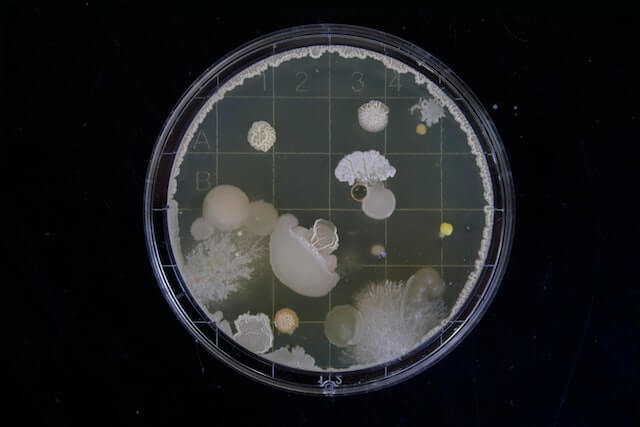Most people are aware that consuming too much alcohol has negative effects. A hangover is just one example of a negative effect. After drinking alcohol, people often feel a bit sick to their stomachs, dizzy, or have diarrhea. Many times it’s laughed off as “just” a hangover, but it’s your body’s way of telling you it was too much. Alcohol can also have more life-threatening effects, including alcohol poisoning, relationship problems, and accidents caused by drunk drivers.
When you stop drinking, you may notice healthier, better-looking skin, better-quality sleep, and increased energy levels. You may also notice some improvements in your digestion. There’s no doubt that alcohol affects your health. But what about alcohol and your gut health? It turns out there is a strong connection between drinking alcohol and a leaky gut. But does alcohol kill gut bacteria?
Effects of Alcohol on the Gut
The cells in the body need nourishment. This requires food so that it can be converted by the digestive system into a form that cells can use. This process, carried out by the digestive system, is called metabolism. There are several organs that make up the digestive system, including the mouth, throat, esophagus, stomach, small and large intestines, liver, and anus. Each of these organs plays a role in making sure nutrients from ingested food are digested and absorbed. They also make sure waste products are removed from the body.
When alcohol comes into contact with organs in the digestive system, it can cause damage. After alcohol enters the bloodstream, it can cause damage to the liver and the intestines. The digestive system has to work harder to eliminate alcohol from the body since it’s not treated like nutrients found in food. The elimination of alcohol is prioritized over the absorption of other nutrients like lipids, carbohydrates, and proteins. The digestive tract absorbs alcohol, but unlike nutrients, alcohol is absorbed through the stomach lining and directly into the bloodstream and small intestine. The liver is responsible for metabolizing alcohol. However, other body cells can metabolize it as well. When alcohol is metabolized, it is converted into acetaldehyde, a toxic chemical.
Alcohol can cause damage to any organ it comes in contact with, including the mouth and throat, esophagus, stomach, liver, and intestines. It has also been found to be a co-carcinogen that initiates and promotes the growth of some types of tumors. Even small amounts of alcohol can cause injury and alter the normal secretion of gastric acid.
Does Alcohol Kill Gut Bacteria?
Acetaldehyde, produced by alcohol, can damage every system in the digestive tract. It can affect three specific systems in the gut. The stomach is responsible for releasing acid to digest food and kill pathogens and bacteria. Alcohol slows the digestive pathways and the speed at which hydrochloric acid is released. This causes cortisol to be released, which shuts the digestive pathway down. When stomach acid is low, the digestive enzymes are reduced, and it’s harder for the stomach to digest food.
The job of the small intestines is to absorb nutrients from food. Alcohol causes holes in the small intestine, which is the link between alcohol and a leaky gut. The leakiness allows toxins, bacteria, and larger-than-normal food particles to enter the bloodstream. This can lead to unusual food sensitivities and inflammation.
Thirdly, alcohol can upset the gut microbiome in the colon. The gut microbiome in a healthy person is made up of millions of different kinds of bacteria. They help your body metabolize nutrients and also help produce serotonin for your mood. Even though you may not feel like you suffer from digestive issues when you consume alcohol, the truth is that when alcohol damages your digestive system, it impacts the whole body. Simply put, when enzymes and stomach acid are lower than normal, the small intestine is inhibited from extracting nutrients from food like it is supposed to.
Alcohol is often used in disinfectant products such as mouthwash and hand sanitizer because it kills some types of germs. According to Healthline, at specific concentrations, alcohol does kill many types of germs, bacteria, fungi, and viruses. Some even think consuming alcohol can help kill the bacteria that cause food poisoning. Hand sanitizers often use alcohol to kill the virus that causes COVID-19. But there is this one little catch.
But Alcohol Also Kills GOOD Bacteria!
The body benefits from the balance of good and bad bacteria in the gut. Does alcohol kill good gut bacteria? Alcohol “kills” good bacteria by sterilizing them. It essentially creates a toxic environment in which bacteria cannot survive. With the good bacteria destroyed, the microbiome becomes unbalanced, and the diversity of bacteria is reduced. When the microbiome is disrupted, it can lead to a variety of problems, including inflammatory bowel disease, irritable bowel syndrome, celiac disease, type 1 and 2 diabetes, food allergies, cardiovascular disease, and cancer.
Bad bacteria are allowed to grow when the delicate balance of bacteria in your gut is disrupted. This can lead to imbalances in your mood, unwanted weight gain, food allergies and intolerances, skin problems, and increased fatigue.
What Can I Do To Improve Leaky Gut and Restore Good Gut Bacteria?
The gut is like a gateway to good health. Once you understand the impact of consuming alcohol, it is possible to restore good bacteria and repair the gut. There are a lot of things you can do to help restore the balanced microbiome in your gut. You can cut out processed foods, eat more fruits and veggies, and foods that contain pre and probiotics. Exercising, getting plenty of rest, and reducing stress can all be beneficial to helping rebalance the bacteria in your gut.
Drinking alcohol disrupts the perfectly balanced bacteria in the gut by killing off the good bacteria. Consuming essential vitamins and minerals can help you restore this delicate balance. However, it can take a long time to restore gut health. That’s where BioRebalance comes in helpful. The proprietary blend contains the powerful nutrients needed to restore your gut, including amino acids, essential fatty acids, antioxidants, minerals, and natural compounds that support the restoration of your gut, liver, and brain.
Dr. Rebeca Eriksen, PhD MSc BSc (Hons) RD, is the Co-Founder at BioRebalance. She has a PhD in Nutritional Genetics from Imperial College London, and over ten years of clinical experience designing custom nutritional repair regimens for patients recovering from alcohol addiction and other disorders.

